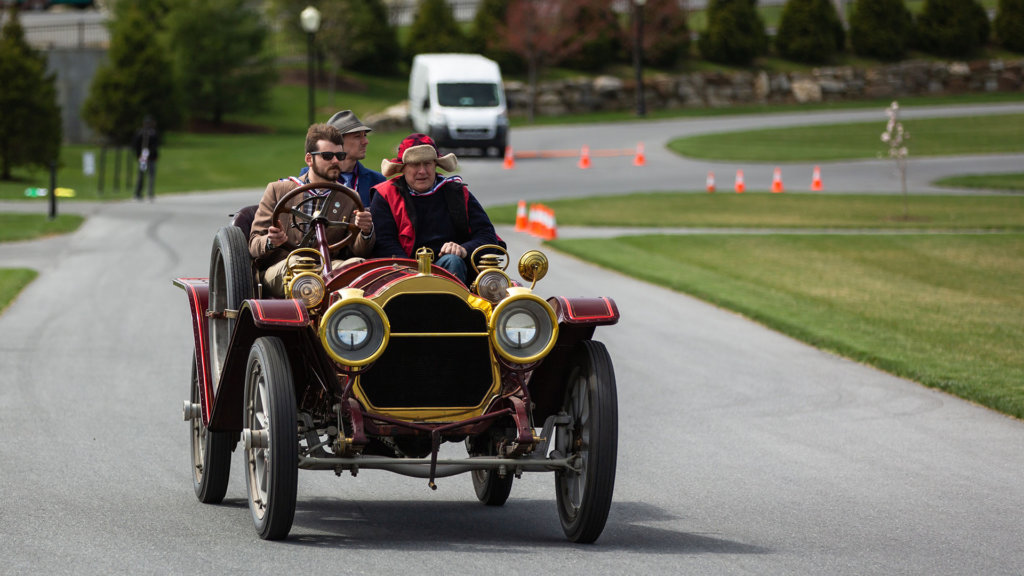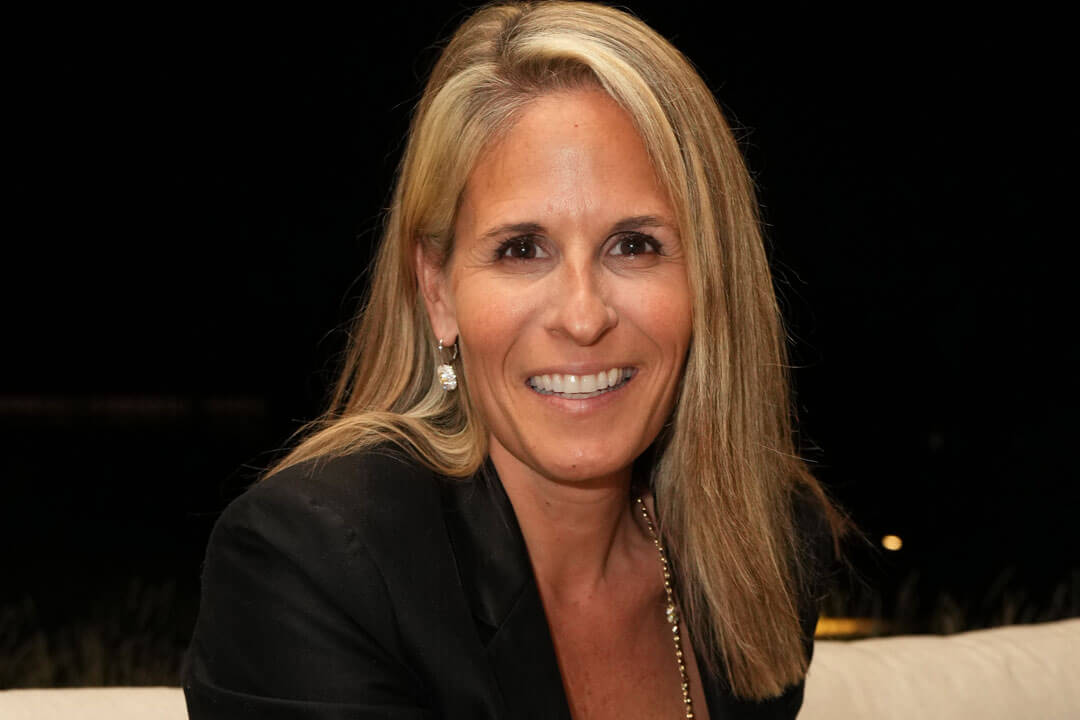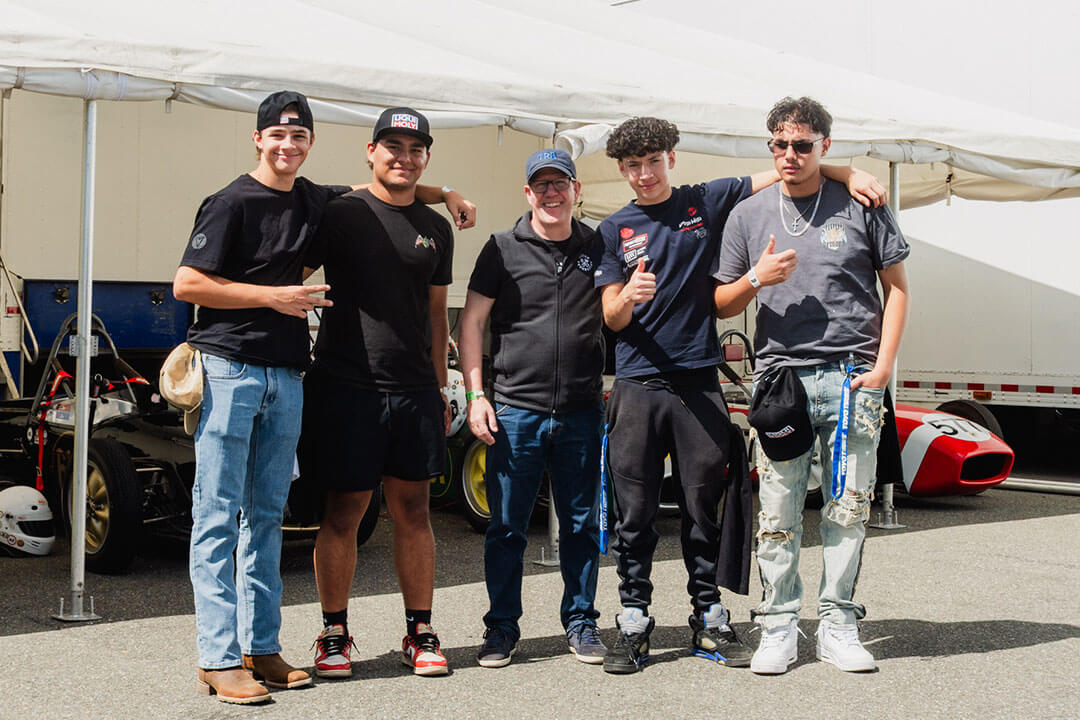Philip Reinhardt of Mechanical Arts: Next Generation
There are many people working hard to preserve car culture. The Piston Foundation is proud to share stories like that of Philip Reinhardt, graduate of McPherson College, Class of 2019 and a Piston Foundation Ambassador. We love the name of his new restoration shop, Mechanical Arts, because it perfectly sums up what he’s offering to car lovers while recognizing that these machines are truly works of art. Here’s what he had to say to us in a recent Q&A.

By jeff mason
July 15, 2020
[addthis tool=”addthis_inline_share_toolbox_a1tk”]
Why do you think it’s important to preserve car culture?
I’ve been a life-long car enthusiast, starting from when I followed with my father to where he was working for a construction company. My favorite thing to do was hang with the mechanics working on dump trucks and excavators. As a kid, I loved taking things apart—not necessarily putting all of them back together again. That led to building things with Legos and working on lawnmowers and then cars. This work engages all of your senses and driving an old car is sensory overload. That experience is more interactive and rewarding if you’ve spent late nights and hard earned dollars getting it to run.
Why do you see value in the Piston Foundation?
Car clubs are struggling because young people don’t jive with the typical club format and groups like SEMA can address legal issues or lobby for car needs but we need an advocate for the heart and soul of car culture. It’s definitely crossed my mind that I might see the day when we’re restricted to where we can drive manually operated cars and that’s a concern for me. We need someone to stand up for what we love and convey our message because if we can’t interact with our cars, then what’s the point?
“It’s definitely crossed my mind that I might see the day when we’re restricted to where we can drive manually operated cars and that’s a concern for me. We need someone to stand up for what we love and convey our message because if we can’t interact with our cars, then what’s the point?”
Driving is the ultimate interaction with a car. If we can’t drive them because there is no one to keep them running, then the cars we love will become static pieces of art. We can see and maybe touch them but cars should be experienced with all the senses, including smell and sound.
What makes you think there is a shortage of qualified restorations specialists?
No one graduating with a bachelor’s in automotive restoration from McPherson College ever has trouble finding a job. The placement rate is 98%. After graduation, I worked with a high-end restoration shop in Massachusetts. I liked working on vintage sports cars a lot but I missed driving the boat and Maine. I returned to my home state of Maine, where I can captain the Laura B. and now run Mechanical Arts.
Just to show you the huge demand for skilled specialists, I was working at capacity within a month of opening my shop. There are plenty of garages that might do all right with this kind of work but there is no one within an hour’s drive that specializes in vintage cars.
It’s just me right now but when I’m ready to hire, I can find qualified people with contacts in car clubs and McPherson, but I know I have to be willing to teach. It is unlikely that I will find someone locally that wouldn’t need training, though I could find someone through McPherson that I would trust to jump into the job.
Is there a need for both formal and hands-on experience when it comes to learning how to restore a car?
McPherson helped me break a lot of bad habits. My instructors taught me the correct mechanical procedures. My wiring pre and post-graduation is day and night because my instructor is an electrical engineer who worked on the Apollo program. I’m a lot more confident in my work and, when I look at what I did in the past, I can’t believe I did what I did. Reading and doing are two different things. As a formal learning institution, McPherson is realistic. Our instructors didn’t tell us we’d graduate 100% qualified to dominate in a shop but we’d definitely be ready to learn and work our way up. Nothing replaces real world experience and that’s why McPherson College places such a big emphasis on every student doing multiple internships. I can see advantages to an apprenticeship program like the new program that Piston Foundation is starting, Piston Academy.
What’s it like to start a restoration business?
It’s fun and stressful. Car owners hope that every job is small but you never know what you’ll find. Take one of the cars I’m working on now. The owner put in $18,000 in bodywork and let it sit for 16 years. The bolts on the intake manifold weren’t torqued, leaking coolant and the engine seized. That could have been prevented if he ran the engine and caught the issue early on. Now, the engine is rusted solid and it’s cheaper to replace than rebuild.
Unless you have a big wallet, don’t let your car sit, that’s the worst thing that can happen to a car. It does a ton of damage. If it’s a classic car and you can’t afford to put it on the road, at least fire it up and get the engine up to temperature regularly. But, if you don’t it’s job security for me.
What’s been the downside to opening Mechanical Arts?
I know the books and searching for parts are necessary but, if I had my way, I’d be turning wrenches all the time. The best part for me is cranking the music and focusing on what I need to do to get the car in great shape.
What advice would you give to vintage car owners?
Find the right people to work on your car by starting a conversation. Have they taken courses and what are their qualifications? Ask what kind of kind of cars they work on and the country of origin because each one of those has different philosophies and approaches. The guy who does oil changes on a Kia may not be the guy to rebuild the transmission on your 1954 MG. Look around the shop because the layout says a lot. Although, I’ve seen shops that are a complete mess that still produce good work. Best thing to do is start small. Ask them to do a bit of work before you hire them to do a huge project. Thank you, Philip Reinhardt for talking with us but, more to the point, for preserving car culture!
Download article »
Donate
Today
Support skilled trade education for future auto restoration technicians.
Campaigns
Give to What You Love
Make a gift that helps the next generation access the education and training they need to begin a career as a classic car technician. Gifts of any size are appreciated and will be used to fund our scholarship and apprenticeship programs.
Sponsor a Piston Scholar
Piston Foundation scholarships are awarded to aspiring technicians to help them begin an auto restoration career. Give to the car culture you love. 100% goes to fund scholarships.
Cars for Piston Scholars
Turn your collector car into education and hands-on training for aspiring collector car technicians. Your car can change lives. 100% goes to fund scholarships.
Give to What You Love
Make a gift that helps the next generation access the education and training they need to begin a career as a classic car technician. Gifts of any size are appreciated and will be used to fund our scholarship and apprenticeship programs.
Sponsor a Piston Scholar
Piston Foundation scholarships are awarded to aspiring technicians to help them begin an auto restoration career. Give to the car culture you love. 100% goes to fund scholarships.
Cars for Piston Scholars
Turn your collector car into education and hands-on training for aspiring collector car technicians. Your car can change lives. 100% goes to fund scholarships.
Subscribe
Sign up for our monthly email with stories, updates, and volunteer opportunities.



